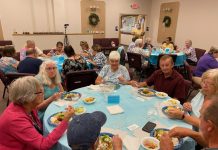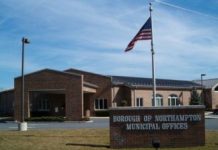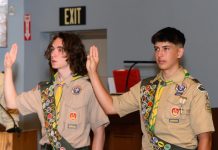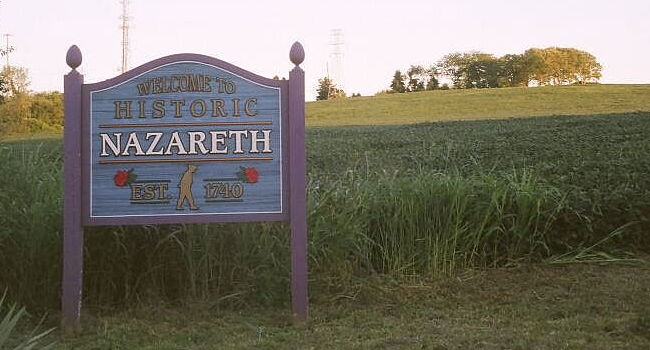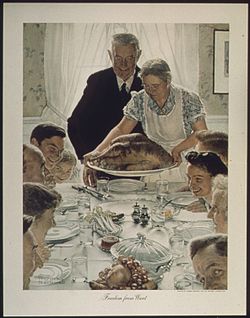
By LARRY OBERLY and ED PANY
In this column, we conclude with a view of the Spanish Flu in the Northampton area and beyond.
In November of 1918, the Cement News for the first time published how to treat yourself or your family if infected with the Spanish Flu. They said: Go to bed, remain quiet, take laxatives, eat plenty of nourishing food, keep up your strength, remember nature is the only cure. Always call the doctor.
Deaths were reported to be about 1 in every 400 cases. People were under the impression that those hit hardest were those who did not go to bed soon enough or got out of bed too early. Evidence was reported that the flu was spread by human contact, chiefly coughing, sneezing or spitting (many men chewed tobacco), and avoiding colds. While no cure existed, it was thought that Quinine or aspirin or Dover’s Powders may be prescribed by the doctor to relieve aches and pains. Many over the counter and snake oil salesmen advertised like mad that their product was the best to rid the body of the effects of this disease.
The number of obituaries in the weekly Cement News were on the rise and the most common cause of death was pneumonia. Due to the family celebrations of Thanksgiving, Pennsylvania reported 35,000 dead and infections were at 500,000. An army of volunteers who worked in the improvised hospitals were thanked for their dedication and service at the bedsides of so many victims by the state Health Commissioner Dr. Benjamin Franklin Royer.
In the week before Christmas the newspaper headline read, “Deaths Harvest of the Week.” Before Thanksgiving the number of cases in Northampton were on the decline. In early December they were rising again. People were again urged to avoid crowds. This would create a disproportionate impact on the young who always had a Christmas Program at Church or Sunday School. These would spread the illness even farther. In a resident school in Pennsylvania, 185 out of 187 students were infected. Many schools were forced to close again. People were advised to keep their children out of crowded stores.
In the last month of the year in Northampton, a family of five had deaths within that month. The first was a mother who had just given birth in the month, she was followed a few weeks later by her new baby, and within a few days, the baby’s older brother and older sister, one day apart. The family of five had only the father, James Haldeman, survive.
We hope you have enjoyed looking back at a period of our history 102 years ago, in almost the same time of year and under similar circumstances as present day. The more things change, the more they stay the same in many ways. The lesson may be that when confronted with a health emergency that we have never seen before, we have no option but to make decisions that benefit the well being of the greatest number of people.
Next time, join us for our next series where we travel to the year 1931.

